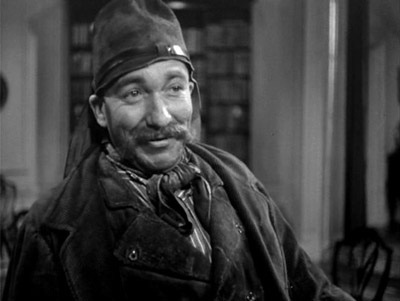Underachievers of the world: Slack off!

One of my self-identified Lefty comrades recently wrote, in connection with a topic mentioned earlier here:
So either one is arguing for meritocracy (who did that?) or we accept and advocate for people performing below their full potential. My that binary looks good on you. Can we please not simply argue for the opposite of what the other side does. We are smarter than that.Note the giant unexamined assumption here that's there something wrong with "people performing below their full potential." When did that commandment get added to the Decalogue?
It's just a lemma, of course, of the whole bourgeois instrumental-rationalist notion that life is all about maximizing some function or other -- utility, hedony, efficiency vel sim(*).
But let's focus specifically on the idea of "performing at full potential". This phrase is of course just modern pseudo-quantitative managerial-pedagogical jargon for what used to be called the virtue of Industry.
As virtues go, this is an awfully new one. Industry would not have been considered a virtue in the ancient world, or the Middle Ages, or the Renaissance. Aristocrats would have found it revoltingly ungentlemanly, and peasants, artisans and slaves would have thought it insane. In fact, they might have fragged you for practicing it and making the rest of 'em look bad.
I doubt that the virtue of Industry is in fact much older than, surprise, the Industrial Revolution. Perhaps a little. Anybody got texts to suggest from before, say, the later 18th Century?
The first person I can think of, offhand, to write in praise of Industry (The Virtue) is Benjamin Franklin, who notoriously compiled a list of thirteen -- count 'em, thirteen -- virtues. (The Middle Ages only had seven, three theological and four natural.)
Ben's list is well worth reading:
- TEMPERANCE -- Eat not to fulness; drink not to elevation.
- SILENCE -- Speak not but what may benefit others or yourself; avoid trifling conversation.
- ORDER -- Let all your things have their places; let each part of your business have its time.
- RESOLUTION -- Resolve to perform what you ought; perform without fail what you resolve.
- FRUGALITY -- Make no expense but to do good to others or yourself i.e., waste nothing.
- INDUSTRY -- Lose no time, be always employed in something useful; cut off all unnecessary action.
- SINCERITY -- Use no hurtful deceit; think innocently and justly, and, if you speak, speak accordingly.
- JUSTICE -- Wrong none by doing injuries, or omitting the benefits that are your duty.
- MODERATION -- Avoid extremes, forbear resenting injuries as much as you think they deserve.
- CLEANLINESS -- Tolerate no uncleanliness in body, clothes, or habitation.
- TRANQUILLITY -- Be not disturbed at trifles, or at accidents common or unavoidable.
- CHASTITY -- Rarely use venery but for health and offspring, never to dulness, weakness, or the injury of your own or another's peace or reputation.
- HUMILITY -- Imitate Jesus and Socrates.
D H Lawrence has never been my favorite writer -- though I knew a girl once who was crazy about him, and she was quite something -- but he's very good on Ben and his virtues:
This is Benjamin's barbed wire fence. He made himself a list of virtues, which he trotted inside like a grey nag in a paddock..... A Quaker friend told Franklin that he, Benjamin, was generally considered proud, so Benjamin put in the Humility touch as an afterthought. The amusing part is the sort of humility it displays. 'Imitate Jesus and Socrates,' ... One can just imagine Socrates and Alcibiades roaring in their cups over Philadelphian Benjamin, and Jesus looking at him a little puzzled.
.... He had the virtues in columns, and gave himself good and bad marks according as he thought his behaviour deserved. Pity these conduct charts are lost to us....
He was a little model, was Benjamin. Doctor Franklin. Snuff-coloured little man!
... I admire him. I admire his sturdy courage first of all, then his sagacity, then his glimpsing into the thunders of electricity, then his common-sense humour. All the qualities of a great man, and never more than a great citizen. Middle-sized, sturdy, snuff-coloured Doctor Franklin, one of the soundest citizens that ever trod or 'used venery'.
I do not like him.

-----------------
(*) And you often find a further utterly unjustified and entirely unexamined idea that these three maxima are mutually implicit -- maximizing one implies maximizing the others. What a hoot, huh?

